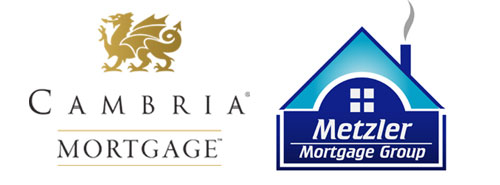-
Share via:
(651) 552-3681
Home Purchase - Home Refinance
Serving MN WI IA ND SD CO FL
- Home
- Reviews
- Apply
- Quick Qualify
- Rates & Costs
- Loan Programs
- Bad Credit Loans
- Buying a House
- Commercial / Apartment
- Doctor Loans
- FHA Loans
- Down Payment Assistance
- First Time Home Buyer
- HomeReady
- Investor DSCR Loans
- Luxury home financing
- Jumbo Loans
- Loans for Self Employed
- New Construction Loans
- No Down Payment Loans
- No Doc / Non-QM
- Refinancing
- Contract for Deed Refi
- Renovation Loans
- USDA Loans
- VA Loans
- Client Resources
- After BK or Foreclosure
- The Home Loan Process
- Daily Mortgage News
- Your credit score
- Student loans
- Homebuyer Classes
- Mortgage FAQ
- Glossary of Mortgage Terms
- Use a Bank or Broker?
- Fixed or ARM
- Home Buyers Guide
- Mortgage Rate Locks
- Long Term Rate Locks
- Mortgage Loan Limits
- No Closing Cost Loans
- Get a Second Opinion
- Tips for a smooth closing
- Top Mortgage Mistakes
- Foreclosures / Short Sales
- How to buy foreclosures
- Well and Septic
- Beware Predatory Lenders
- About
- Blog
- My Acct
Navigation- Home
- Reviews
- Apply
- Quick Qualify
- Rates & Costs
- Loan Programs
- Bad Credit Loans
- Buying a House
- Commercial / Apartment
- Doctor Loans
- FHA Loans
- Down Payment Assistance
- First Time Home Buyer
- HomeReady
- Investor DSCR Loans
- Luxury home financing
- Jumbo Loans
- Loans for Self Employed
- New Construction Loans
- No Down Payment Loans
- No Doc / Non-QM
- Refinancing
- Contract for Deed Refi
- Renovation Loans
- USDA Loans
- VA Loans
- Client Resources
- After BK or Foreclosure
- The Home Loan Process
- Daily Mortgage News
- Your credit score
- Student loans
- Homebuyer Classes
- Mortgage FAQ
- Glossary of Mortgage Terms
- Use a Bank or Broker?
- Fixed or ARM
- Home Buyers Guide
- Mortgage Rate Locks
- Long Term Rate Locks
- Mortgage Loan Limits
- No Closing Cost Loans
- Get a Second Opinion
- Tips for a smooth closing
- Top Mortgage Mistakes
- Foreclosures / Short Sales
- How to buy foreclosures
- Well and Septic
- Beware Predatory Lenders
- About
- Blog
- My Acct
The Complete Home Buyers Guide
Congratulations of your decision to buy a home.
There is nothing more awesome than achieving the American dream of home ownership. But the road to buying a home is a road only traveled for most people once or twice in their lifetime. So I’ve put together a first time home buying guide to help guide you successfully on your way.
The first step is to ask yourself: ‘Is it really time for me to buy a home?’
Don’t buy a home just because you think everybody’s doing it, or because someone said it’s stupid to “throw money away” on rent. Don’t buy a home because you believe its a buyer’s market, or just because of low mortgage rates. Buy a home because you are ready to settle down for at least 5-years, you need a place to live, are financially secure today, and believe you will be in the future.
How to Prepare to Buy Your First Home
How Much House Can You Afford?
Are You Really Ready? 5 Reasons Not to Buy a Home
Rent vs Buy CalculatorDetermine how you will afford your home
For most of us, our home is the most expensive thing we’ll ever buy. And for most of us, you will need to finance the purchase.
To pay for your first home, you’ll need good credit, a steady job, and a some money for down payment.
First-time homebuyers face challenges, no doubt. That said, the availability of mortgages down payments as low as 3% (FHA requires 3.5%, Conventional 97, HomeReady and HomePossible all as little as 3%) mean that you might not need to save for years to have enough for a down payment (even if a larger down payment is usually a good idea).
As well, with student-loan debts high (and, per a recent Federal Reserve study, a deterrent to buying a home), it may be valuable to some first-time buyers that Fannie Mae will back loans to borrowers with debt-to-income levels of as high as 50%. This can mean that first-time homebuyers whose future potential income prospects are good may be able to get home sooner
Pre-Approval
The first move is once you decide you want to buy a home is NOT to contact a real Estate Agent, look at homes online, or stop in the local open house. The smart move is to contact your local mortgage lender to get Pre-Approved for financing.
The Loan Officer will take your application, pull credit, and go over with you what loan programs you qualify for, how much house you can afford, what payments will look like, and how much money you'll need to pull it all together between down payment and closing costs.
Once you have this information, you can go look at homes knowing you can get financing, and knowing you are looking at home prices you can actually afford.
Main Items Mortgage Lenders Look At
Credit / Credit History
This shouldn’t be a surprise. your credit score matters. The higher the credit score, the more loan options are available to you, with the best interest rates, and even lowest down payment requirements. As your credit scores go down, there are bigger down payment requirements, less options, and higher interest rates.
Many people look at places like Credit Karma to see their credit score. This is OK to get an idea of where your credit score is at, but understand this is NOT your mortgage credit score, and your mortgage credit score will be slightly different.
Down Payment Requirements
Down payment requirement vary depending on many factors. You can do no downpayment on VA loans for our military personal, or even USDA loans for buying a home in a rural area. But that is pretty much it for no down payment. Everyone is is going to need something.
Down payment assistance is available for some people, and these programs usually require you put at least $1,000 to $2,000 into the deal.
Standard conforming conventional loans start at just 3% down, but you get better deals as you increase down payment. You should really always shoot for at least 5% down. The best option is always at least 20% for down payment, but obviously that is extremely difficult for many people, especially first time home buyers.
Another consideration in down payment size is mortgage insurance. Mortgage insurance is required to be dealt with whenever you don't put at least 20% down payment. Also known as PMI, or private mortgage insurance, this additional cost in your montly payment is required to offset the risk of lending to someone with less than 20% down.
Mortgage insurance is more expensive the smaller the down payment, so increasing your down payment can save you a lot.
Down payment and reserves
Aside from having the the actual down payment and money for closing costs, lenders love to see that after closing on the home, that you'll not be broke, and have some money left over in the bank. Plus of course it is just smart to have money left over for emergencies and unexpected expenses.
Some loans require money left over in the bank, so do not. Your Loan Officer will let you know of any reserve requirements during your pre-approval process.
Stable Employment
Mortgage guidelines like to see good stable employment. Thant makes sense, but for most people, don't worry if you've changed jobs recently. They just don't like to see you've had 5 different jobs in the last two-years.
If you are self-employed, are paid a large part of your income in commission, or tips, be prepared for a different challenge. Generally speaking, for these people guidelines want you at your job for at least two-years so we can average your income. For self-employed people, you have the additional challenge of writing off income. Great for paying less in taxes, but can be problematic if you show too little qualifying income to afford the home. Click here for more information on self-employed loans.
** EXPERIENCE MATTERS **
Top rated mortgage lender locally and nationally, year after year... This is because clients agree - Experienced Loan Officers with mortgage interest rates you can brag about and amazing service clearly sets us apart from the big banks and online lenders.
Address
33 Wentworth Ave E, St Paul, MN 55118
Contact
Main (651) 552-3681
Joe@JoeMetzler.com
Cell/Text (651) 705-6261We also call from
(651) 615-7545
(952) 486-6135License Info
Cambria Mortgage
NMLS# 322798 Branch:1888858Joe Metzler Loan Officer
NMLS# 274132. License MN #MLO-274132, WI #11418. SD #MLO.03095, ND #NDMLO274132, IA #36175, FL #LO119389, CO #100536785Privacy Policies | Disclaimers | Disclosures | Terms of Use | DMCA Notice | ADA Notice |

Equal Housing Lender. The Joe Metzler Team at Cambria Mortgage lends in Minnesota, Wisconsin, Iowa, North Dakota, South Dakota, Colorado, and Florida only. This is not an offer to lend or to extend credit, nor is this a guaranty of loan approval or commitment to lend. Information here can become out of date, and may no longer be accurate. Products and interest rates are subject to change at any time due to changing market conditions. Not all programs available in all states. Actual rates available to you may vary based upon a number of factors. Consumers must independently verify the accuracy and currency of available mortgage programs. All loan approvals are subject to the borrower(s) satisfying all underwriting guidelines and loan approval conditions and providing an acceptable property, appraisal and title report. Joe Metzler, NMLS 274132, Cambria Mortgage NMLS 322798. © 1998 - 2024.











